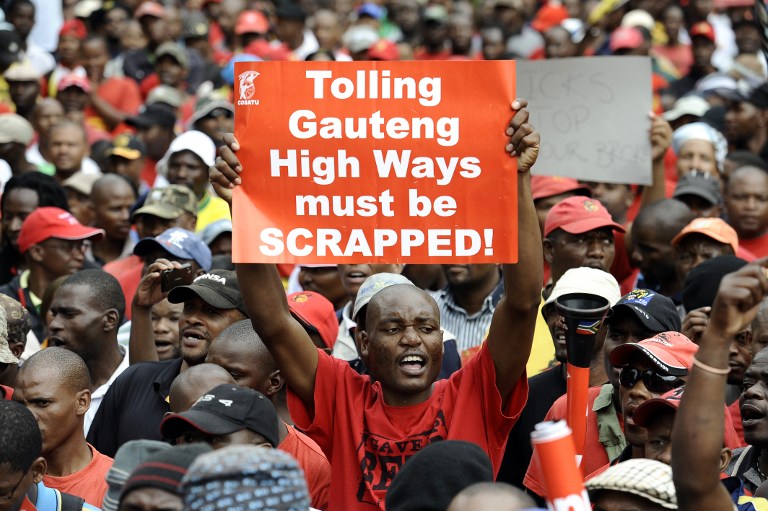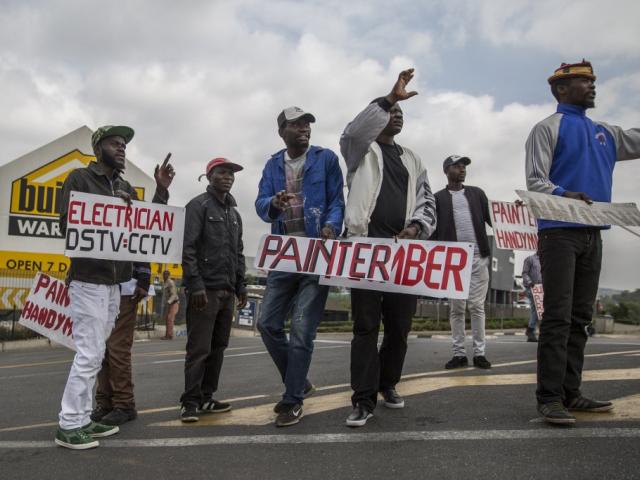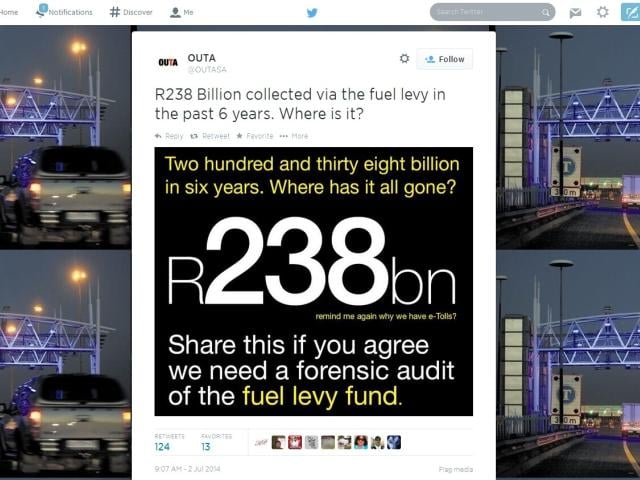In an effort to repair damage caused to its image by the introduction of e-tolling, the South African National Roads Agency (SANRAL) recently shared positive aspects about its operations on social media.
One Facebook image showed a wide open road, with a road sign cautioning “jobs ahead”. Its caption read: “#DidYouKnow that SANRAL projects have created 29,120 full-time jobs? SANRAL specifically aims to build local communities wherever its projects are. #KnowSANRAL”
An Africa Check reader asked us to look into the claim. George Venter wrote: “Is there any validity in Sanral's claim? Most of the jobs ‘created’ by them are at best temporary whilst projects are under construction.”
Does Venter have a point or is SANRAL’s claim accurate?
29,120 jobs created in the previous year

SANRAL is a company owned by the South African government and tasked with financing, improving and maintaining the country’s national road network (roads starting with an N, such as the N1 between Musina and Cape Town).
The agency’s general communication manager, Vusi Mona, told Africa Check it had “created the equivalent of 29,120 full time jobs” - but in their 2013/2014 financial year. In the most recent financial year, SANRAL had created 19,820 “average equivalent” full-time jobs.
SANRAL posted the Facebook image on 22 September. Mona said the agency's 2014/15 annual report was presented to parliament on 30 September. Asked why SANRAL did not post the latest figures on Facebook, Mona said they only informed their social media agency on 1 October that the 2014/2015 annual report had been tabled.
(Note: A day after our first query, SANRAL posted a new infographic with the 2014/15 figures on Facebook.)
‘Average equivalent full-time jobs’
Is a full-time job a permanent job? Here is where you need to understand what SANRAL means when they speak of “average equivalent” full-time jobs.
Mona said the agency assumes someone with a full-time position “works 2,000 hours a year”, which translates to eight hours a day, five days a week. Labour inspector James Kgobe from the department of labour confirmed to Africa Check that a full time job “is defined by the normal working hours of up to 45 hours a week”.
How it works is that SANRAL adds up the total number of hours worked by everyone on its different projects in a year and then divides it by 2,000 to arrive at an “average equivalent” of full-time jobs.
The figures SANRAL reports therefore do not reflect the exact number of jobs created. Mona was unable to tell us how many of the jobs were permanent positions. He said: “We do not monitor the number of permanent positions as these are on our more than 500 projects run by contractors across the country.”
Conclusion: SANRAL’s claim is misleading
SANRAL’s Facebook post was misleading. By waiting eight days, it would have been able to provide the public with the most recent job creation figures available. This showed 10,000 less “full-time jobs” than the 18-month old number from 2013/14 they cited.
Secondly, the figure didn’t show the number of jobs or permanent positions created, but reflected an estimate calculated by the number of hours everyone worked on all projects in the 2013/14 year.
It is encouraging that the agency has now posted a new infographic, noting the specific financial year it is referring to. However, SANRAL still doesn’t explain how it calculates the number of “full-time” jobs on the infographic.
Additional reading
Have S. Africans paid up R238bn in fuel levies in 6 years? Not if you do the sums





Add new comment